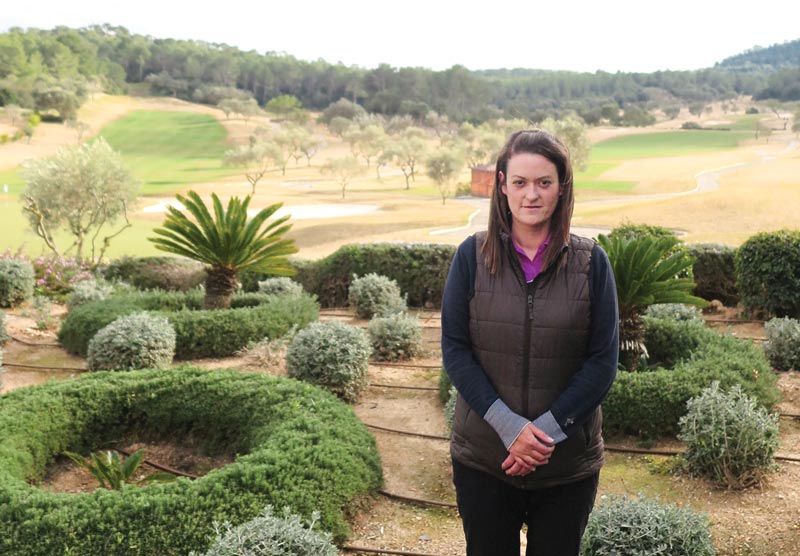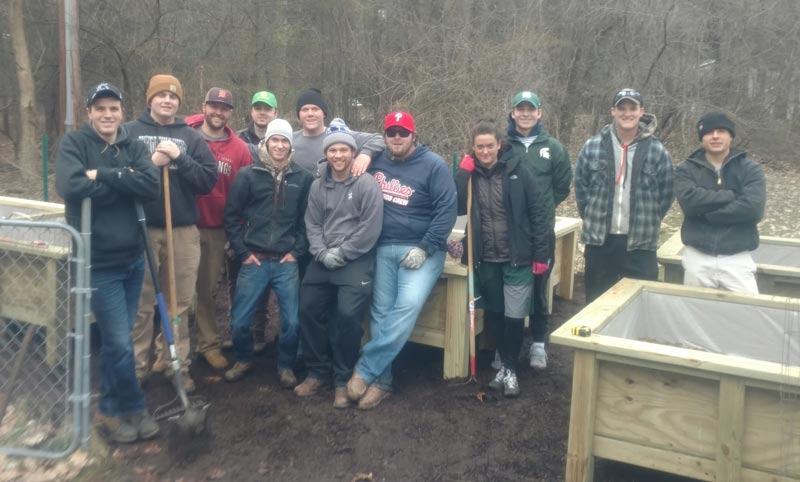
Elena Rivas’ résumé features Spain’s Valderrama Golf Club, the Royal Spanish Golf Federation, Piping Rock Club in Locust Valley, N.Y., and her current place of employment, Arabella Golf Mallorca in Spain. Photo by Paco Gavira
Once upon a time, her hometown served as an industrial center in the heart of Spain’s coal country. Elena C. Rivas grew up in Mieres in northern Spain. She spent summers with her grandparents, and her grandfather, Luis Rivas, who was a coal miner and farmer. Elena adored the outdoors on the farm, where she mowed grass and fed animals when she wasn’t hiking or fishing.
As coal production diminished in Europe — Spain was severely affected when mines closed and people lost jobs — Rivas found herself climbing the ladder in a totally different industry.
After seeing the growth of golf in her homeland fueled by professionals Seve Ballesteros, Jose Maria Olazabal and Sergio Garcia — according to one report, from 2015 to 2016, Spain had the second highest increase in registered golfers in Europe — Rivas decided golf was her future. “They were the first contact I had with golf, and that was what made me research and decide it was the profession for me. I wanted to be an agronomist,” Rivas says. “When I was young, barely any people played golf, and now it has grown immensely.”
Rivas, who received a certificate from Michigan State University’s turfgrass management program less than two years ago, is currently a three-year GCSAA International Superintendent Member at Golf Son Vida, one of three championship golf courses at Arabella Golf Mallorca in Palma de Mallorca, Spain, which is supervised by head superintendent Paco Gavira.
Rivas’ status is no surprise to Michigan State’s David Smitley. “She not only has a bachelor’s degree (from the University of Leon in Spain), but she also has a master’s in ag engineering (from EADE Malaga in Spain), and I’ve never had that (combination), plus she had practical experience on golf courses,” says Smitley, a professor in the Department of Entomology who still communicates with Rivas about mole cricket issues at her golf course. They’ve even discussed the possibility of launching a project to import the nematode and fly parasitoid that are working well in Florida for mole cricket control. “She’s just a unique person,” Smitley says.
How did Rivas come to America? She completed the internship portion of her master’s at Spain’s Valderrama Golf Club (host of the 1997 Ryder Cup) and also at Real Club de Golf Tenerife. Her next move was contacting the Royal Spanish Golf Federation’s Green Section director, David Gomez, who helped secure her a spot as a gardener and technician at the organization, which two years later awarded her a scholarship to Michigan State.
“Studying at MSU completely changed the way I saw college. American studies are much more oriented to prepare you for the workplace and are more dynamic and interactive than what I was used to in Spain,” says Rivas, who is among approximately 65 students who have come from Spain to Michigan State.
“It’s very important to me in that they (Spanish students) came from a long way away, come to a relatively cold climate from what they’re used to and to a language that isn’t a native language, and yet they often make the best grades in the class,” says Michigan State’s Trey Rogers, Ph.D., professor of turfgrass science and management. “Elena was no different.”

Elena Rivas (fourth from right) with some of her Michigan State University classmates. Photo courtesy of Michigan State University
While she was at Michigan State, Rivas worked as an intern from April to August at Piping Rock Club in Locust Valley, N.Y., which buoyed her knowledge and has come in handy at Son Vida.
“It helped me discover the American work model, especially new management techniques for personnel as well as machinery and also how to develop turfgrass management programs that were new to me,” Rivas says.
Son Vida is an 18-hole, par-71 public course that usually draws a minimum of 100 rounds daily. Rivas and her crew of 13 oversee creeping bentgrass greens, bermudagrass fairways overseeded with ryegrass, bermudagrass rough, and bunkers that now are being renovated with the Better Billy Bunker method and silica sand, which is a USGA recommendation, Rivas says.
The club also is renovating tees No. 10 through 18. For irrigation, Son Vida has a reverse osmosis plant where water is treated before Rivas uses it. A main challenge for Rivas and her crew is that the course is in the middle of a residential area, in close proximity to houses, which means they can’t make noise early in the morning and have to start later than normal.
Ten-year GCSAA Class A superintendent Dan Powell, who oversaw Rivas at Piping Rock, is proud to see she’s making a special kind of noise in the industry.
“She is very bright, and there was no stopping her from anything work-related. She was a breath of fresh air,” Powell says.
Howard Richman is GCM’s associate editor.